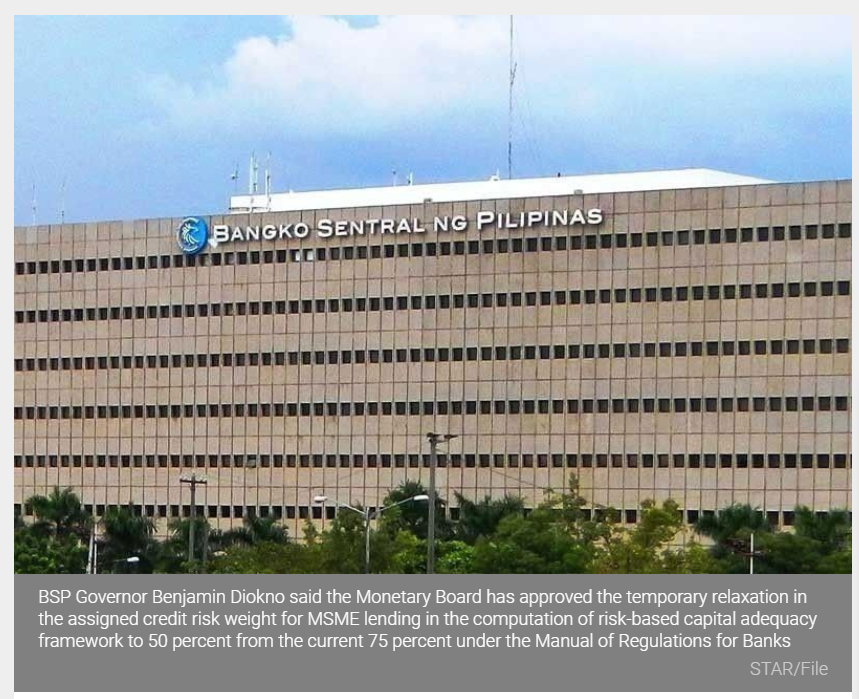Philippines: BSP lowers credit risk weight for MSME loan
MANILA, Philippines — Loans for micro, small and medium enterprises (MSMEs) now carry a lower credit risk weighting to encourage banks to lend more to the sector as the coronavirus disease 2019 or COVID-19 has severely disrupted economic activity across the country, according to the Bangko Sentral ng Pilipinas.
BSP Governor Benjamin Diokno said the Monetary Board has approved the temporary relaxation in the assigned credit risk weight for MSME lending in the computation of risk-based capital adequacy framework to 50 percent from the current 75 percent under the Manual of Regulations for Banks (MORB).
A lower credit risk weight would allow banks to lend more to the MSME sector than setting aside the amount to comply with capital requirements.
Diokno said the temporary reduction in the exposures of MSMEs as defined under the Basel III risk-based capital adequacy frameworks and the Basel 1.5 risk-based capital adequacy framework of 50 percent would apply until end-December next year.
In a memorandum, the BSP said those covered by the reduced credit risk weight are MSMEs that meet those criteria of qualified MSME portfolio as well as current exposures that do not qualify as highly diversified portfolio.
The BSP has been adopting regulatory relief measures to reduce the financial burden on MSMEs as the enhanced community quarantine in Metro Manila and nearby provinces has been extended for the second time to May 15 to prevent the spread of the contagion.
MSMEs play a very important role contributing 35.7 percent of the total value added to the economy and accounts for 99.5 percent of the total establishments and employ 62.8 percent of the total labor force.
The sector is expected to play a crucial rule in restarting the economy after the health crisis as the country’s gross domestic product (GDP) is expected to contract by 0.2 percent this year, the first since in more than two decades or after shrinking by 0.6 percent in 1998 due to the Asian financial crisis.
The regulator earlier approved a package of measures including the inclusion of MSME loans in of the banks’ compliance with reserve requirement ratios to ensure adequate liquidity and credit in the financial system.
The BSP requires banks to keep a minimum amount of cash reserves with the central bank determined by the amount of deposit liabilities owed to customers. It slashed the RRR for universal and commercial banks by 200 basis points last March 30, freeing up P200 billion into the financial system to boost economic activity
The RRR for big banks has been reduced by 800 basis points to 12 percent from a high of 20 percent in early 2018 as part of commitment to bring down the level to single digit by the middle of 2023, while that of thrift as well as rural and cooperative banks are currently set at six and four percent, respectively.
Source: https://www.philstar.com/business/2020/04/30/2010684/bsp-lowers-credit-risk-weight-msme-loan


 Thailand
Thailand




